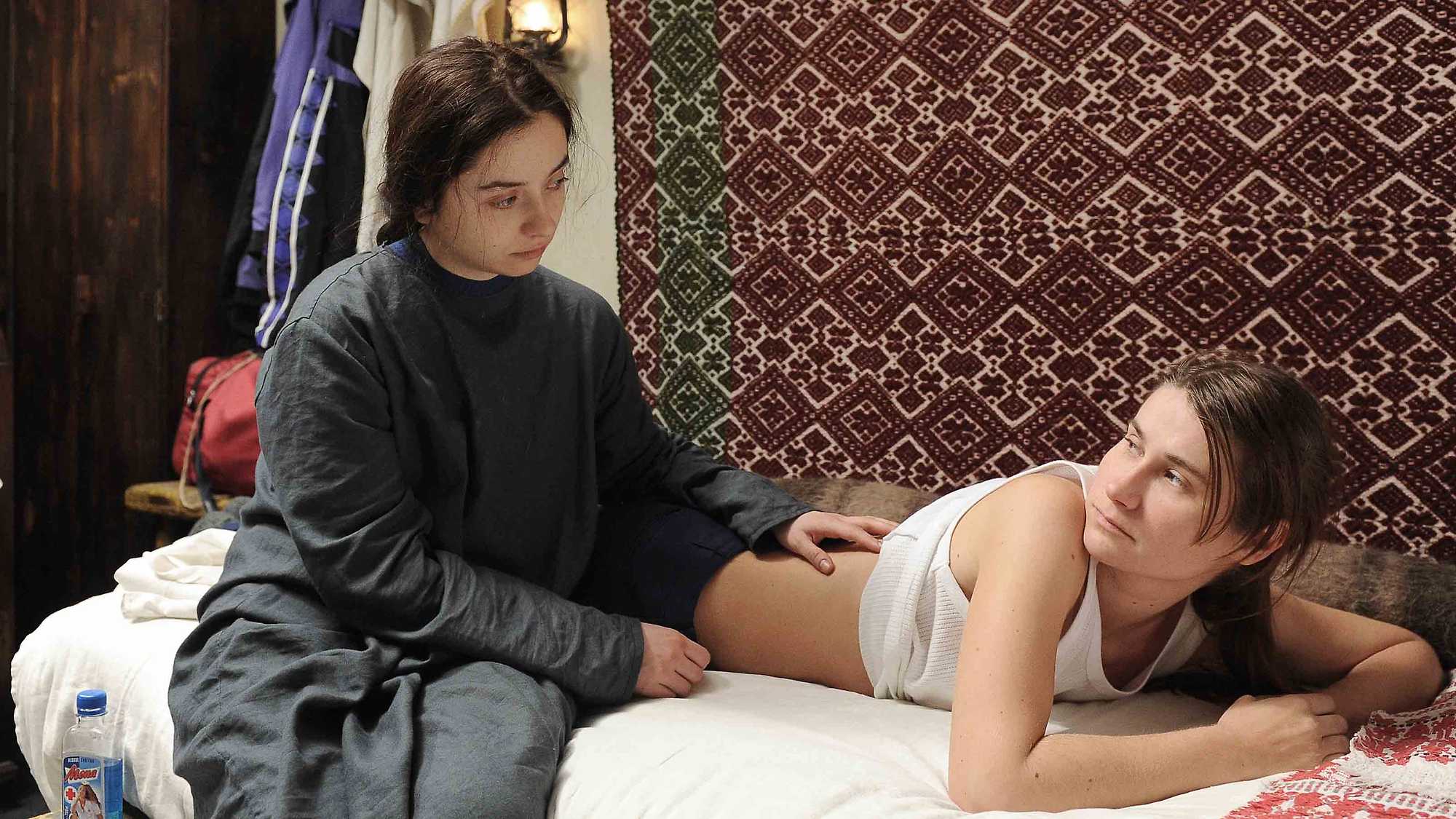Romanian actresses Cristina Flutur and Cosmina Stratan shared the Best Actress Award at Cannes as former friends slowly driven apart by differences in faith in this new film from the director of 4 Months, 3 Weeks and 2 Days.

Inspired by true events, this tragic tale of religious and romantic conflict breathes new life into Romanian new wave.
Screened as part of NZIFF 2012
Beyond the Hills 2012
După dealuri
Romanian director Cristian Mungiu won the Palme d’Or in 2007 for 4 Months, 3 Weeks and 2 Days. Cristina Flutur and Cosmina Stratan shared the Cannes Best Actress Award this year for their extended and mesmerising pas de deux in his new film. They play former friends reunited and then slowly driven apart by differences in faith.
“Set largely in Voichita’s monastery, a windswept outcropping of buildings in the deep countryside, the story unfolds in atmospheric bits and narrative pieces. Alina and Voichita are lifelong friends, having grown up in the same orphanage. Alina, the stronger, more stubbornly independent of the two, has returned home after a stint working in Germany thinking that she and Voichita will go off together. Mungiu, who prefers that viewers come to their own conclusions, never makes it clear if the women are lovers…
Running two-and-a-half engrossing hours, Beyond the Hills explores the push and pull between the collective and the individual, between faith and free will. Voichita insists that she wants to stay at the monastery, where she and some dozen other nuns – along with chickens, boxes of bees and a kind of Greek chorus of incessantly barking dogs – live without electricity under the strict religious supervision of a priest. With mounting desperation and increasingly violent outbursts, Alina tries to change Voichita’s mind.
Believing in a world of absolute good and evil, and confused by Alina’s passion, the nuns and priest respond by trying to ritualistically drive out the Devil, an ordeal that effectively pits one woman against a millennium of religious orthodoxy.” — Manohla Dargis, NY Times